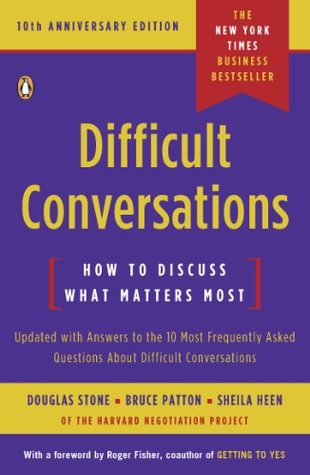More on this book
Community
Kindle Notes & Highlights
Delivering a difficult message is like throwing a hand grenade. Coated with sugar, thrown hard or soft, a hand grenade is still going to do damage. Try as you may, there’s no way to throw a hand grenade with tact or to outrun the consequences. And keeping it to yourself is no better. Choosing not to deliver a difficult message is like hanging on to a hand grenade once you’ve pulled the pin.
The point is this: difficult conversations are almost never about getting the facts right. They are about conflicting perceptions, interpretations, and values.
Interpretations and judgments are important to explore. In contrast, the quest to determine who is right and who is wrong is a dead end.
What I think about your intentions will affect how I think about you and, ultimately, how our conversation goes. The error we make in the realm of intentions is simple but profound : we assume we know the intentions of others when we don’t. Worse still, when we are unsure about someone’s intentions, we too often decide they are bad.
But talking about fault is similar to talking about truth — it produces disagreement, denial, and little learning. It evokes fears of punishment and insists on an either/or answer. Nobody wants to be blamed, especially unfairly, so our energy goes into defending ourselves.


